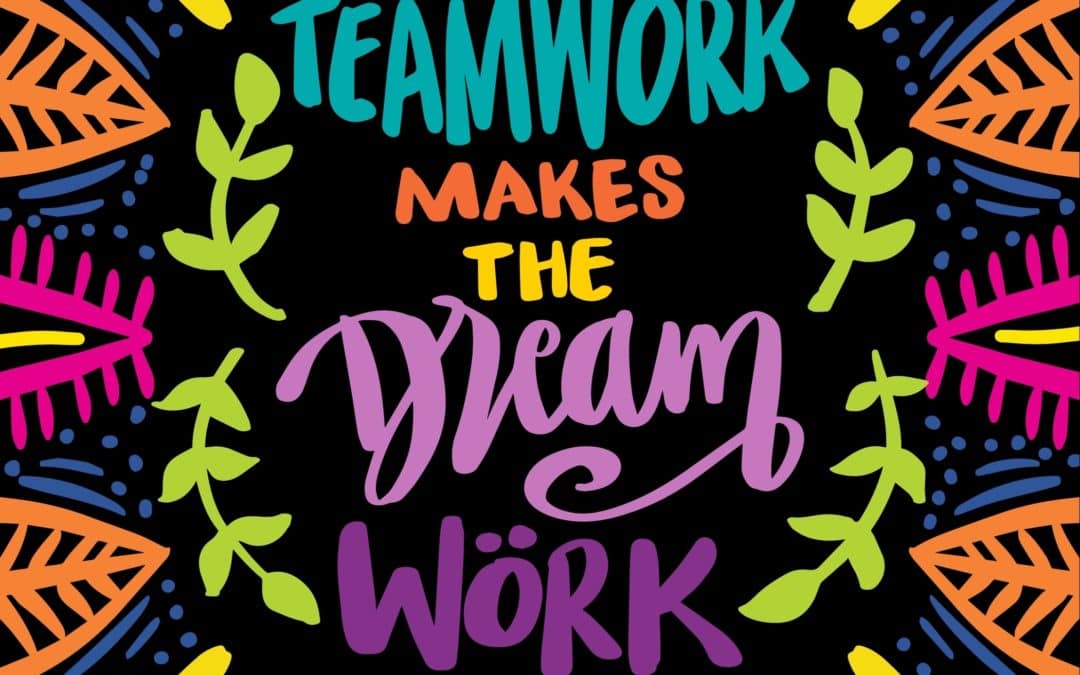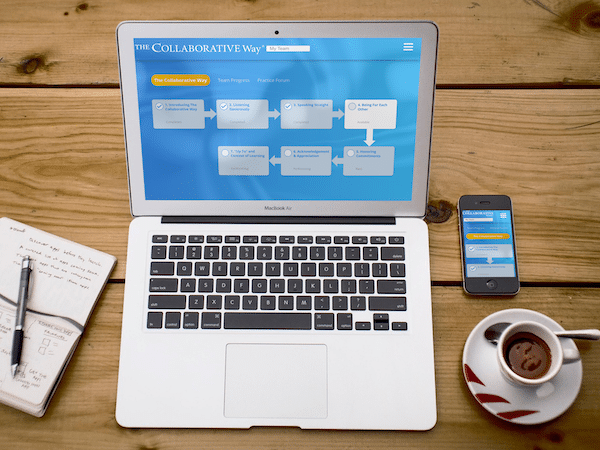Why Teamwork Makes the Dream Work
We have teamwork when people are working together toward a common goal, professional or otherwise. The concept is simple enough to define, but grasping and applying it effectively is complicated.
The outcome of teamwork depends on the unique challenges you face and the nature of your work. It can mean one thing to one team member and something completely different to another.
Why is teambuilding important?
In essence, you have successful teamwork when the team delivers better results than any individual on their own could. When you cooperate on tasks, it’s easier to achieve a goal.
Ideally, each team member brings a unique skill set and their own experiences, but cooperates with others. The team works toward a common goal by forming connections and bonds.
Reasons to start teambuilding
- Teamwork and boosting team performance
- Getting to know each other better
- Fostering creativity and innovation
- Celebration, fun, motivation
- Working better together
- Enhance company culture
- Show employees appreciation
- Create something to look forward to
- Build bridges across departments
- Improve morale and engagement
What is your dream?
You need to know what you’re setting out to achieve. Typical business goals include improving shareholder value, perfecting the business plan, improving service or product quality, improving the timeliness of deliveries, and marketing through a new or alternative channel.
What is the most important goal of a company?
A business’s most important goal is to provide sustainable value to its customers and ensure optimal future performance.
How does teamwork support goal achievement?
One way teamwork supports goals is by splitting difficult tasks into more manageable ones, then cooperating to complete them faster. Different people are good at different tasks. If it’s not possible to determine who the best person for each task is, specialized training might be needed.
Advantages of teamwork: Self-monitoring
The first of many teamwork advantages is that teams monitor themselves. There is no one to correct a person who works independently when it’s needed. The team shares responsibility for the common goal. As team members rely on each other’s work quality, they will observe and monitor it.
Someone’s poor performance will impact everyone else’s work adversely. On a more positive note, the rest of the team has the motivation and skills to help someone whose performance dips. An effective team can regulate its own performance without managers having to intervene.
Faster problem-solving
Innumerable solutions exist for a task or problem, and this becomes clear when teamwork is effective. Someone who is working on their own can come up with a couple, but when the whole team tackles a project, it benefits from multiple experiences, skillsets, and perspectives. Teamwork leads to deeper innovation and faster problem-solving.
Team members learn from one another
Perhaps we’re oversimplifying here a bit, but bear with us. Imagine five people working on the same project in separate rooms. They all cope on their own with no one to learn from or help. If they all worked together, they would begin to recognize each other’s weaknesses and help each other overcome them.
Is teamwork online or offline easier?
Studies show the prevalence of strategies, challenges, and goals is roughly the same for both modes. However, teams that interact remotely tend to demonstrate a much lower prevalence of specific strategies and challenges. This indicates that online teamwork might involve group deliberation to a lesser extent. It also raises the issue of whether online teamwork encourages strategies to deal with team conflict and stimulate the deliberation needed for problem-solving.
Use a Collaboration App to Improve Teamwork
An app like The Collaborative Way® App can help improve the effectiveness of your teamwork by training your team to work together with greater speed, agility, and flexibility. This app not only teaches you the five core elements of effective collaboration and teamwork–Listening Generously, Speaking Straight, Being For Each Other, Honoring Commitments, and Acknowledgement and Appreciation–it also gives you the opportunity to put these core elements into practice, both in the app and in exercises that you complete with your teammates outside of the app.
The Collaborative Way® App is packed with resources and features designed to help you stay engaged as you and your team begin your journey towards extraordinary teamwork.
3 fun activities for teambuilding that work
Getting results is the main purpose of teamwork. Teams build skills like planning, conflict resolution, problem-solving, and communication through teambuilding activities and events, which should be fun and motivating.
These fun teambuilding activities foster processing, in-depth discussion, and authentic connections, all of which facilitate long-term success.
1. Count to 20
This is a great starter. You can say a number whenever you want and anyone can start counting from one to 20. If two team members speak simultaneously, the count starts over from one.
The game raises awareness of group dynamics and helps people attain a goal with limited communication possibilities.
2. Play team games
Table games like Jenga, Pandemic, Code Names, and Apples to Apples all require teamwork, as do phone games such as Heads Up and Celebrity.
3. The compliments game
This game is as simple as spending a few minutes having team members make each other compliments. They can tell someone they loved their proposal last week or thank them for bringing treats to work. You can also go around and have each team member address the person to their left. This way, no one will be left out.
Storytelling Can Improve Teamwork
The best teambuilding activity involves storytelling. Everyone sits in a circle. Someone begins narrating a story, starting with an incomplete sentence like, “Jane was anxious. When she got her first job as a web designer, she…”
The team member on the right finishes the sentence and adds another incomplete one. This game is great because it helps people improve their listening skills. Everyone in the group has to listen and stays engaged in the activity, which also results in improved collaboration.
3 Keys to Collaborative Teamwork
On that note, three keys to collaborative teamwork are getting everyone on the same page, using teamwork apps, and setting ground rules.
Use teamwork apps to create channels
Teamwork apps and tools can be used to create channels, which are dedicated group spaces. You can have a general channel for company-wide announcements and specific channels for the team to stay current on the latest decisions, conversations, and files.
Teamwork apps are imperative to online teamwork. In times when dropping by someone’s desk is not necessarily an option, they are a way to start group or one-on-one chats by sending a direct message in real time.
No such thing as over-communicating
There is no such thing as communicating too much, especially if you’re working online. Never make assumptions because they can lead to project delays. Be as clear as possible in instructions. Gestures, facial expressions, and tone of voice don’t translate in emails or chats.
Make everyone’s tasks and responsibilities clear when the project starts. People should know what they have to deliver and how their work impacts everyone else on the team and the project itself. If someone makes a mistake, clarity minimizes the risk of shifting the blame by holding employees accountable.
Set baseline rules
Be upfront about your preferred modes of communication and your expectations. Ideally, everyone on the team will be able to share their opinion, but they need to commit to any decision once it’s made. Criticism isn’t necessarily good for motivation or productivity, but team members will be more likely to put an effort into their work if they feel heard.
There are no physical barriers when working remotely, so communication can flow naturally. Being an active listener is key here. The sound of teamwork is not silence, as the meme above misleadingly indicates!
Resources
https://www.betterup.com/blog/what-is-teamwork
https://teambuildinghub.com/blog/teamwork-meme-list/
https://slack.com/blog/collaboration/5-tips-for-effective-collaboration-at-work
https://www.themuse.com/advice/team-building-activities-games-for-work-office


